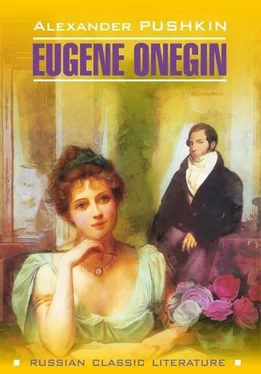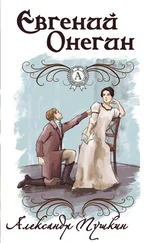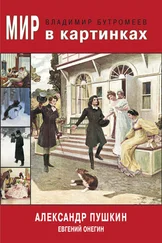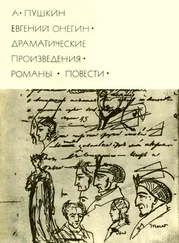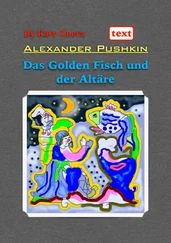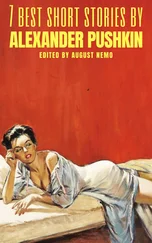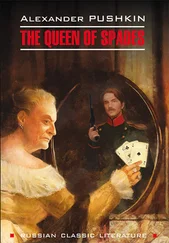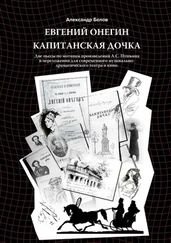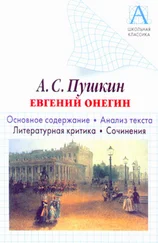Alexander Pushkin - Евгений Онегин / Eugene Onegin
Здесь есть возможность читать онлайн «Alexander Pushkin - Евгений Онегин / Eugene Onegin» — ознакомительный отрывок электронной книги совершенно бесплатно, а после прочтения отрывка купить полную версию. В некоторых случаях можно слушать аудио, скачать через торрент в формате fb2 и присутствует краткое содержание. Город: СПб, Год выпуска: 2017, ISBN: 2017, Жанр: Русская классическая проза, на английском языке. Описание произведения, (предисловие) а так же отзывы посетителей доступны на портале библиотеки ЛибКат.
- Название:Евгений Онегин / Eugene Onegin
- Автор:
- Жанр:
- Год:2017
- Город:СПб
- ISBN:978-5-9925-1230-4
- Рейтинг книги:3 / 5. Голосов: 1
-
Избранное:Добавить в избранное
- Отзывы:
-
Ваша оценка:
- 60
- 1
- 2
- 3
- 4
- 5
Евгений Онегин / Eugene Onegin: краткое содержание, описание и аннотация
Предлагаем к чтению аннотацию, описание, краткое содержание или предисловие (зависит от того, что написал сам автор книги «Евгений Онегин / Eugene Onegin»). Если вы не нашли необходимую информацию о книге — напишите в комментариях, мы постараемся отыскать её.
В формате PDF A4 сохранен издательский макет книги.
Евгений Онегин / Eugene Onegin — читать онлайн ознакомительный отрывок
Ниже представлен текст книги, разбитый по страницам. Система сохранения места последней прочитанной страницы, позволяет с удобством читать онлайн бесплатно книгу «Евгений Онегин / Eugene Onegin», без необходимости каждый раз заново искать на чём Вы остановились. Поставьте закладку, и сможете в любой момент перейти на страницу, на которой закончили чтение.
Интервал:
Закладка:
18
A street running parallel to the Neva, and leading from the Winter Palace to the Summer Palace and Garden.
19
The poet was, on his mother’s side, of African extraction, a circumstance which perhaps accounts for the southern fervour of his imagination. His great-grandfather, Abraham Petrovitch Hannibal, was seized on the coast of Africa when eight years of age by a corsair, and carried a slave to Constantinople. The Russian Ambassador bought and presented him to Peter the Great who caused him to be baptized at Vilnius. Subsequently one of Hannibal’s brothers made his way to Constantinople and thence to St. Petersburg for the purpose of ransoming him; but Peter would not surrender his godson who died at the age of ninety-two, having attained the rank of general in the Russian service.
20
Refers to two of the most interesting productions of the poet. The former line indicates the Prisoner of the Caucasus, the latter, The Fountain of Baktchiserai. The Salguir is a river of the Crimea.
21
The barshtchina was the corvee, or forced labour of three days per week rendered previous to the emancipation of 1861 by the serfs to their lord. The obrok was a species of poll-tax paid by a serf, either in lieu of the forced labour or in consideration of being permitted to exercise a trade or profession elsewhere. Very heavy obroks have at times been levied on serfs possessed of skill or accomplishments, or who had amassed wealth; and circumstances may be easily imagined which, under such a system, might lead to great abuses.
22
From the lay of the Russalka, mermaid of the Dnieper.
23
The serfs destined for military service used to have a portion of their heads shaved as a distinctive mark.
24
The foregoing stanza requires explanation. Russian pancakes or “blinni” are consumed vigorously by the lower orders during the Carnival. At other times it is difficult to procure them, at any rate in the large towns. The Russian peasants are childishly fond of whirligigs, which are also much in vogue during the Carnival. “Christmas Carols” is not an exact equivalent for the Russian phrase. “Podbliudni pessni,” are literally “dish songs,” or songs used with dishes (of water) during the “sviatki” or Holy Nights, which extend from Christmas to Twelfth Night, for purposes of divination. Reference will again be made to this superstitious practice, which is not confined to Russia.
“Song and dance,” the well-known “khorovod,” in which the dance proceeds to vocal music.
“Lovage,” the Levisticum officinalis, is a hardy plant growing very far north, though an inhabitant of our own kitchen gardens. The passage containing the reference to the three tears and Trinity Sunday was at first deemed irreligious by the Russian censors, and consequently expunged.
Kvass is of various sorts: there is the common kvass of fermented rye used by the peasantry, and the more expensive kvass of the restaurants, iced and flavoured with various fruits.
The final two lines refer to the “Tchin,” or Russian social hierarchy. There are fourteen grades in the Tchin assigning relative rank and precedence to the members of the various departments of the State, civil, military, naval, court, scientific and educational. The military and naval grades from the 14th up to the 7th confer personal nobility only, whilst above the 7th hereditary rank is acquired. In the remaining departments, civil or otherwise, personal nobility is only attained with the 9th grade, hereditary with the 4th.
25
A play upon the word “venetz,” crown, which also signifies a nimbus or glory, and is the symbol of marriage from the fact of two gilt crowns being held over the heads of the bride and bridegroom during the ceremony. The literal meaning of the passage is therefore: his earthly marriage was dissolved and a heavenly one was contracted.
26
The fortress of Otchakoff was taken by storm on the 18th December 1788 by a Russian army under Prince Potemkin. Thirty thousand Turks are said to have perished during the assault and ensuing massacre.
27
Svetlana , a short poem by Joukovski, upon which his fame mainly rests. Joukovski was an unblushing plagiarist. Many eminent English poets have been laid under contribution by him, often without going through the form of acknowledging the source of inspiration. Even the poem in question cannot be pronounced entirely original, though its intrinsic beauty is unquestionable. It undoubtedly owes its origin to Burger’s poem Leonora , which has found so many English translators. Not content with a single development of Burger’s ghastly production the Russian poet has directly paraphrased Leonora under its own title, and also written a poem Liudmila in imitation of it. The principal outlines of these three poems are as follows: A maiden loses her lover in the wars; she murmurs at Providence and is vainly reproved for such blasphemy by her mother. Providence at length loses patience and sends her lover’s spirit, to all appearances as if in the flesh, who induces the unfortunate maiden to elope. Instead of riding to a church or bridal chamber the unpleasant bridegroom resorts to the graveyard and repairs to his own grave, from which he has recently issued to execute his errand. It is a repulsive subject. Svetlana , however, is more agreeable than its prototype Leonora , inasmuch as the whole catastrophe turns out a dream brought on by “sorcery,” during the “sviatki” or Holy Nights (see Canto V. st. x), and the dreamer awakes to hear the tinkling of her lover’s sledge approaching. “Svetlana” has been translated by Sir John Bowring.
28
The heroes of two romances much in vogue in Pushkin’s time: the former by Madame Cottin, the latter by the famous Madame Krudener. The frequent mention in the course of this poem of romances once enjoying a European celebrity but now consigned to oblivion, will impress the reader with the transitory nature of merely mediocre literary reputation. One has now to search for the very names of most of the popular authors of Pushkin’s day and rummage biographical dictionaries for the dates of their births and deaths. Yet the poet’s prime was but fifty years ago, and had he lived to a ripe old age he would have been amongst us still. He was four years younger than the late Mr. Thomas Carlyle. The decadence of Richardson’s popularity amongst his countrymen is a fact familiar to all.
29
Referring to Richardson’s Clarissa Harlowe , La Nouvelle Héloïse , and Madame de Stael’s Delphine .
30
Melmoth , a romance by Maturin, and Jean Sbogar , by Ch. Nodier. The Vampire , a tale published in 1819, was erroneously attributed to Lord Byron. Salathiel; the Eternal Jew , a romance by Geo. Croly.
31
A young married couple amongst Russian peasants reside in the house of the bridegroom’s father till the “tiaglo,” or family circle is broken up by his death.
32
Marriages amongst Russian serfs used formerly to take place at ridiculously early ages. Haxthausen asserts that strong hearty peasant women were to be seen at work in the fields with their infant husbands in their arms. The inducement lay in the fact that the “tiaglo” (see previous note) received an additional lot of the communal land for every male added to its number, though this could have formed an inducement in the southern and fertile provinces of Russia only, as it is believed that agriculture in the north is so unremunerative that land has often to be forced upon the peasants, in order that the taxes, for which the whole Commune is responsible to Government, may be paid. The abuse of early marriages was regulated by Tsar Nicholas.
Читать дальшеИнтервал:
Закладка:
Похожие книги на «Евгений Онегин / Eugene Onegin»
Представляем Вашему вниманию похожие книги на «Евгений Онегин / Eugene Onegin» списком для выбора. Мы отобрали схожую по названию и смыслу литературу в надежде предоставить читателям больше вариантов отыскать новые, интересные, ещё непрочитанные произведения.
Обсуждение, отзывы о книге «Евгений Онегин / Eugene Onegin» и просто собственные мнения читателей. Оставьте ваши комментарии, напишите, что Вы думаете о произведении, его смысле или главных героях. Укажите что конкретно понравилось, а что нет, и почему Вы так считаете.
